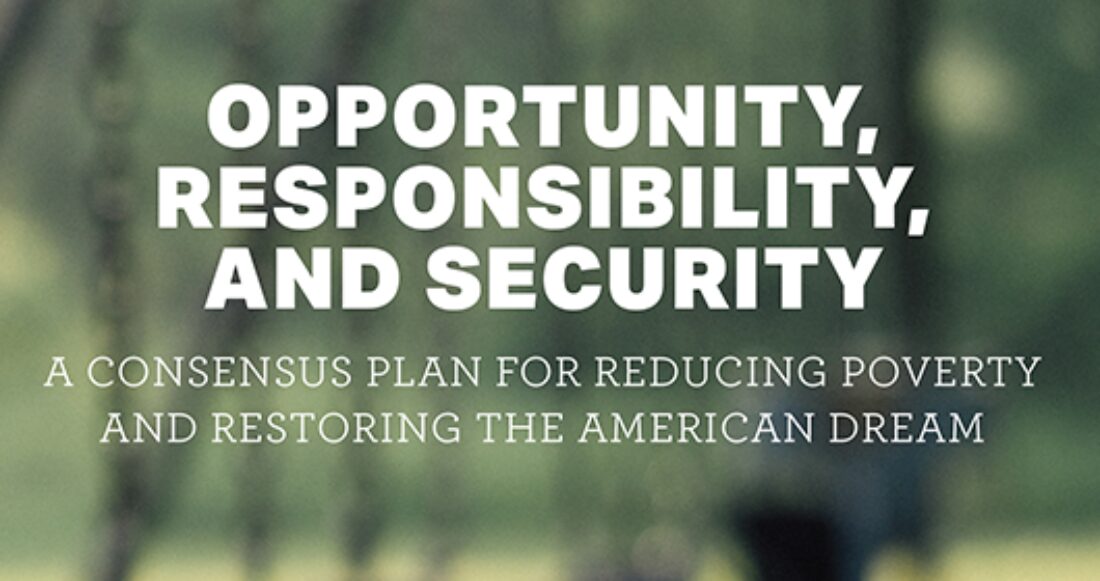New Bipartisan Report on Reducing Poverty and Promoting Opportunity Released

A politically diverse group of experts on poverty has set aside differences and created a detailed plan for reducing poverty and increasing economic mobility.
The plan, outlined in a report released Dec. 3 at an event at the National Press Club in Washington, D.C., calls for each side of the partisan divide to acknowledge that the other side has important insights and policy proposals. For example:
- To improve the stability and security of family environments, the report states both that marriage matters to children’s development (as the right has long maintained) and that family planning and parenting education programs pay off (as the left has long maintained).
- To improve education, the report endorses both public charter schools (which conservatives have promoted) and community schools that serve as hubs that deliver needed health and social services to children and parents (which progressives have promoted).
- To raise levels of work and earnings among the poor, the report recommends that the minimum wage be increased (which the left wants), while also proposing that work requirements in welfare programs be strengthened (which the right wants).
With support from the American Enterprise Institute (AEI), the Brookings Institution, the Ford Foundation and Casey, the group worked together for more than a year to review the best available evidence and craft a plan that all believe would be effective. The key to their success was the recognition that all of them — like nearly all Americans — believe in three core values: opportunity, responsibility, and security. When policies are grounded firmly in these values, the chances both sides of the political divide will accept them are greatly increased.
Among the major achievements of the plan is a chapter offering an unbiased state-of-the-art review of the basic facts about poverty, mobility, education, employment, and marriage in America today. Too often these facts have been politicized; experts on left and right have not even been able to agree on whether poverty has declined since 1980 (it has) or on whether economic mobility is greater in the US than in other industrialized countries (it is not). This highly accessible “facts” chapter will improve policy discussions for years to come.
Another noteworthy achievement is that the report simultaneously addresses three interlocking domains of American life — family, work, and education. “For too long, progress against poverty has been hampered by the stove-piped focus of policymakers on one or another issue in isolation, ignoring the fact that family, work and education are highly interdependent. This report calls for strong, simultaneous action on all three so as to amplify the aggregate impact of our policies,” said David Ellwood of Harvard University, a member of the group that wrote the report.
Citing Abraham Lincoln, the authors of the report argue that it should be a shared national mission to “clear paths of laudable pursuit for all; to afford all an unfettered start and a fair chance in the race of life.”
The Casey Foundation is pleased to have supported this effort and report.






